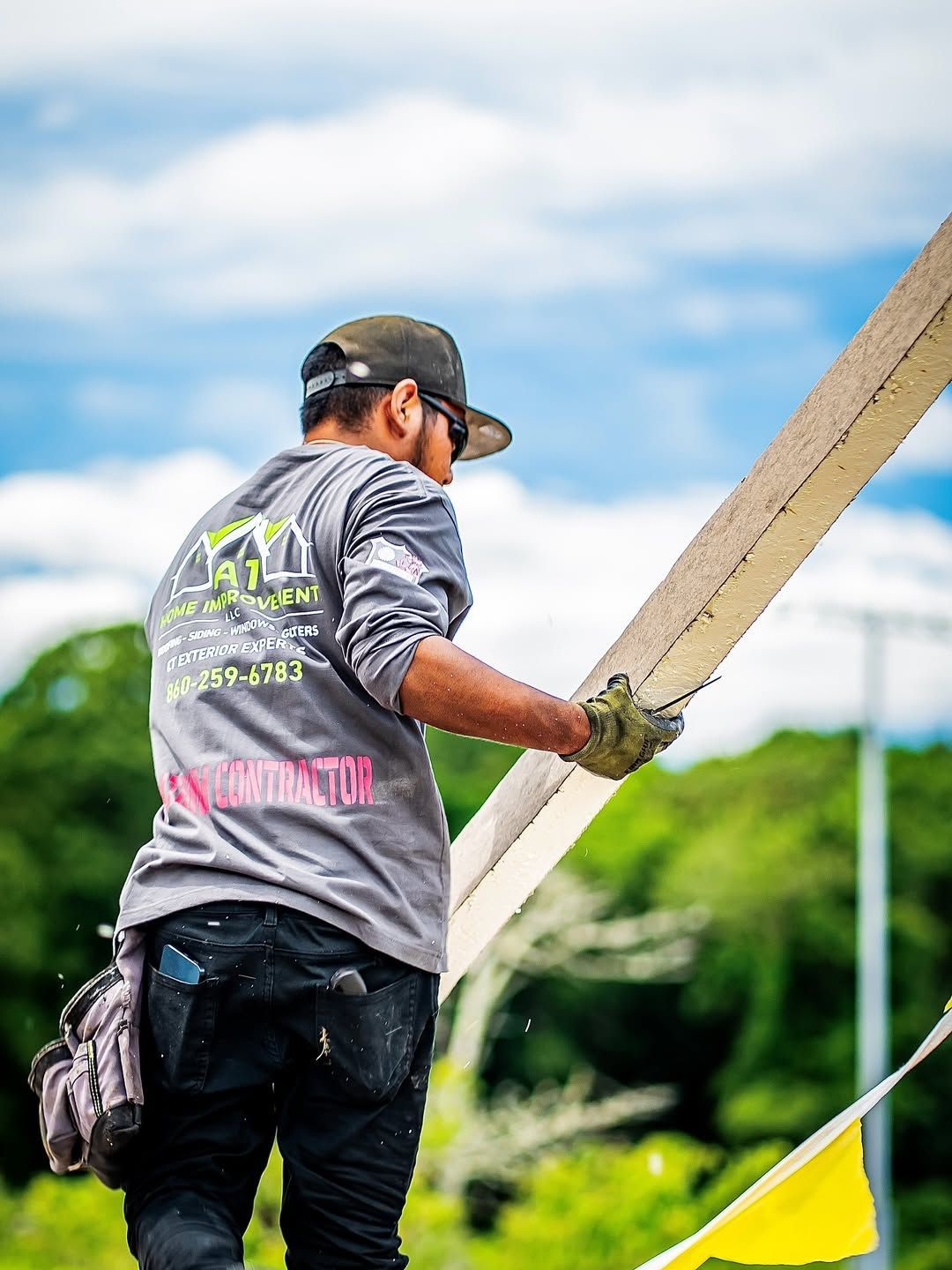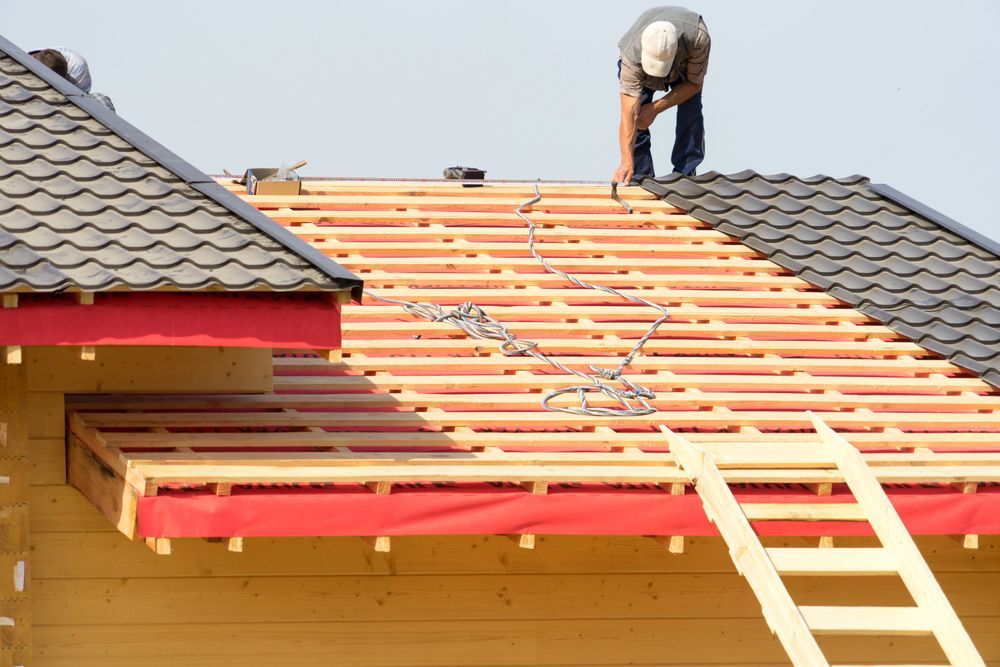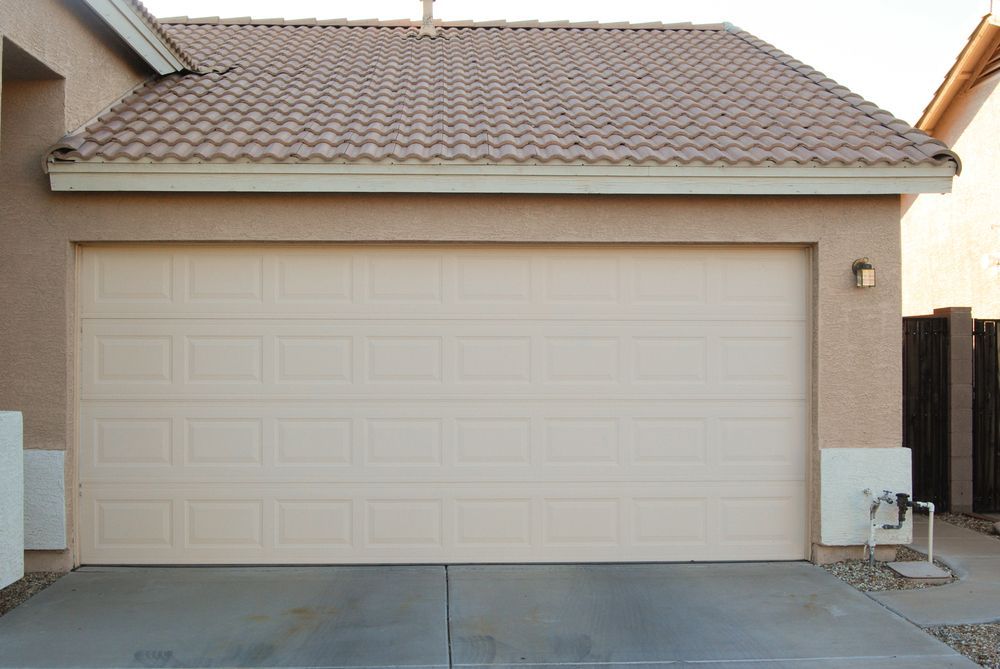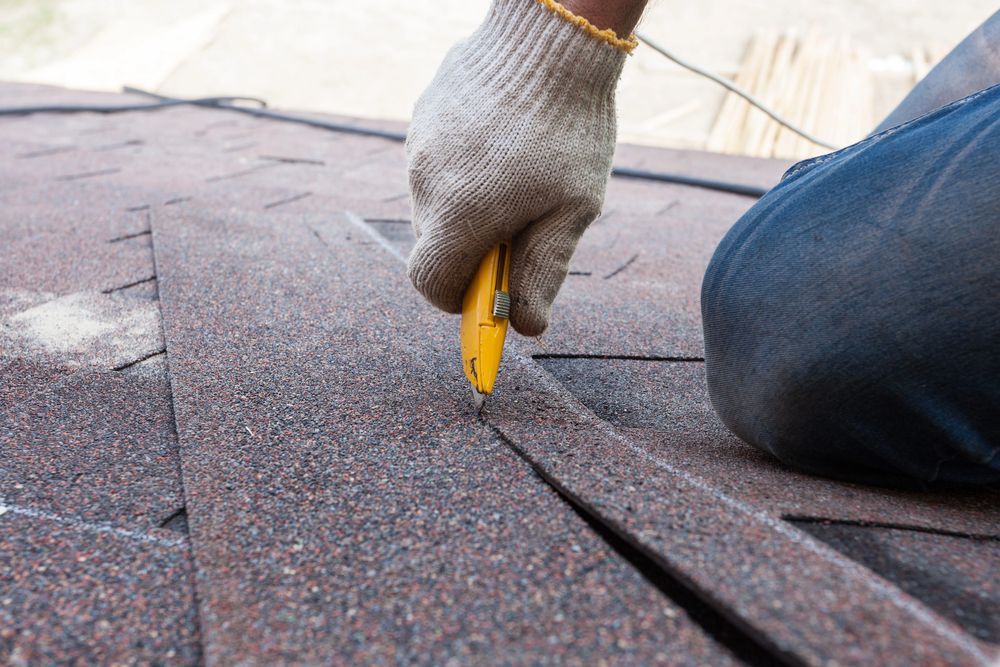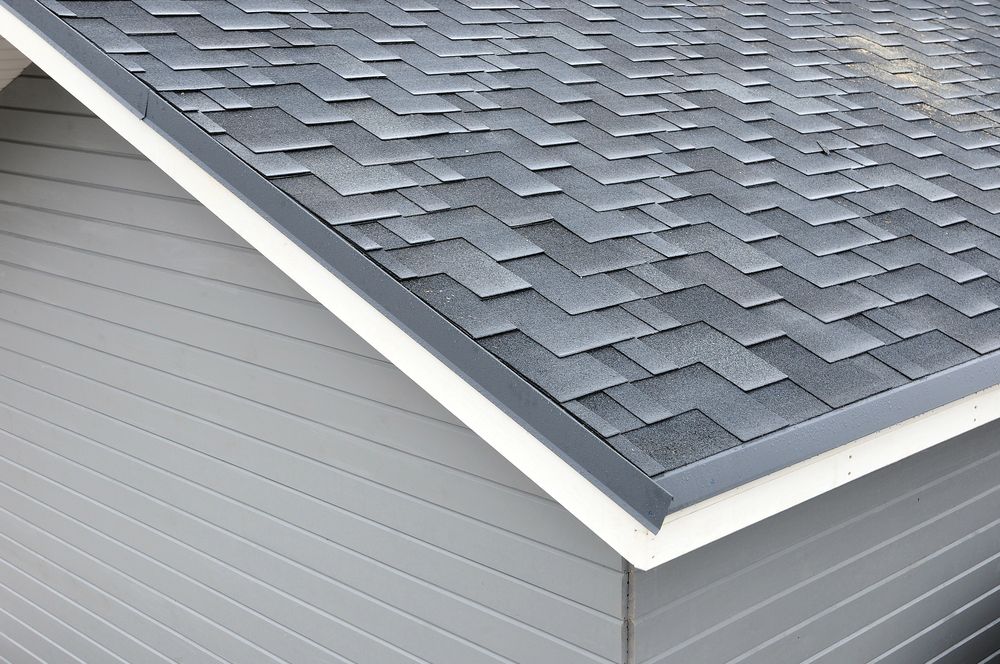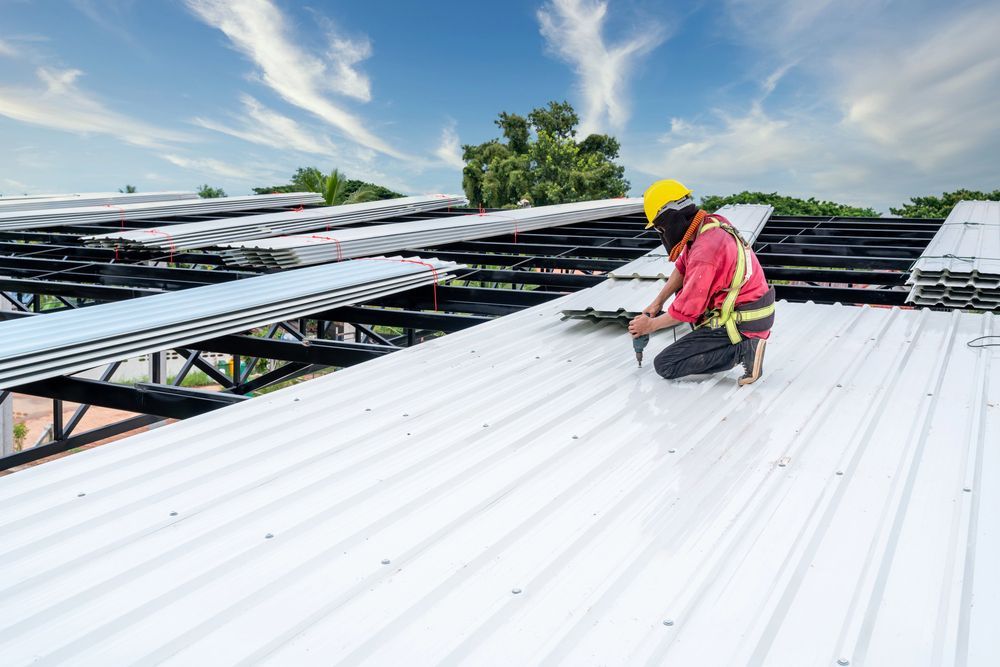How Much Is a New Roof in CT? Cost Breakdown & Tips
If you’re wondering how much is a new roof in CT costs, expect to pay between $9,705 and $18,491. This range depends on factors like roof size, materials, and labor. In this article, we’ll break down these costs and offer tips to help you budget effectively.
Key Takeaways
- The average cost for roof replacement in Connecticut ranges from $9,705 to $18,491, influenced by factors like material choice, roof size, and labor rates.
- Labor costs for roof replacement can vary from $1 to $11 per square foot, depending on roof characteristics and local rates, impacting the overall project budget.
- Homeowners can reduce roof replacement costs by exploring financing options, opting for cost-effective materials, and maintaining their roofs regularly to avoid major repairs.
Average Roof Replacement Cost in Connecticut
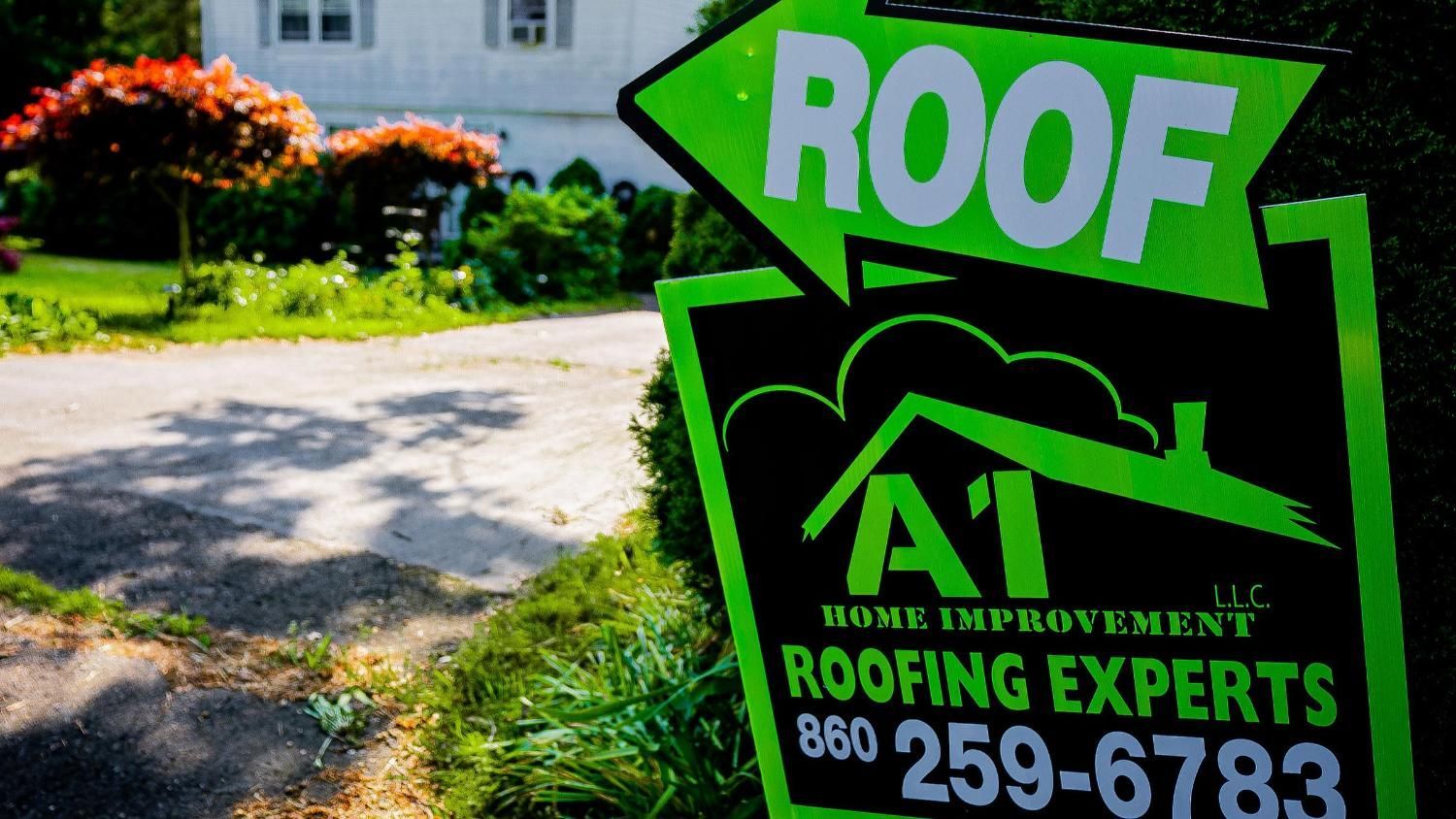
Homeowners planning a roofing project in Connecticut should understand the average replacement costs. Typically, the cost for roof replacement in Connecticut ranges from $9,705 to $18,491, with the average falling between $12,000 and $16,000. These numbers vary significantly due to factors such as roof size, materials used, and the pitch of the roof.
Additional elements like the condition of the current roof and labor costs also play a vital role. For instance, more extensive structural repairs due to poor roof conditions can drive up the overall cost. Budgeting accurately and avoiding unexpected expenses requires knowledge of these factors, especially when replacing a roof in Connecticut.
Typical Costs Per Square Foot
When breaking down the costs further, the price per square foot for roof replacement in Connecticut ranges from $4.35 to $11. This wide range accounts for the different types of materials available. For instance, asphalt shingles, a popular choice, typically cost between $3 to $5 per square foot. Premium materials such as slate tiles typically cost between $9 and $16 per square foot. This price range reflects their high quality.
Beyond materials, other factors like roof pitch and complexity also influence the final cost. Steeply pitched roofs, for example, can cost anywhere from $5 to $25 per square foot due to the increased difficulty and risk involved in installation. Similarly, flat roofs range from $3 to $12 per square feet, reflecting their different installation requirements.
Recognizing these cost factors allows homeowners to better prepare financially for their roofing projects.
Comparison with National Averages
Comparing Connecticut’s roof replacement costs to the national average reveals that homeowners in the state pay slightly more. The national average cost for roof replacement is approximately $8,962. Connecticut’s replacement cost in ct, which hovers just above this figure, highlights the region’s relatively stable pricing in the roofing market.
This slight increase is often due to higher local labor rates and material costs, but it indicates competitive pricing when measured against national standards.
Find Out Precisely How Much Your New Roof Will Cost with Our Online Quote Tool
This calculator will measure your roof using the latest AI technology and instantly provide you with an accurate estimate in seconds.
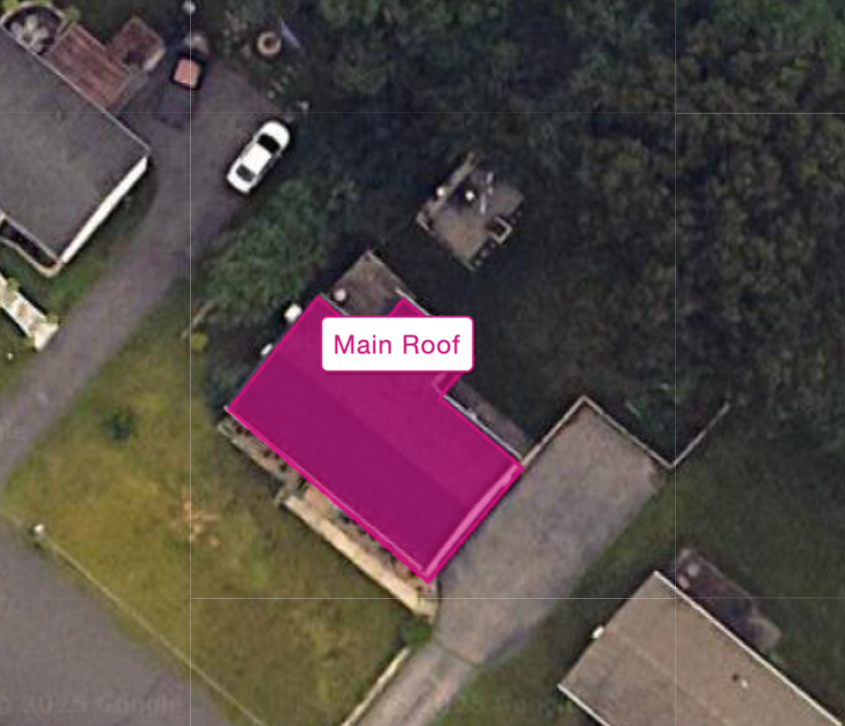
Roofing Material Costs in Connecticut
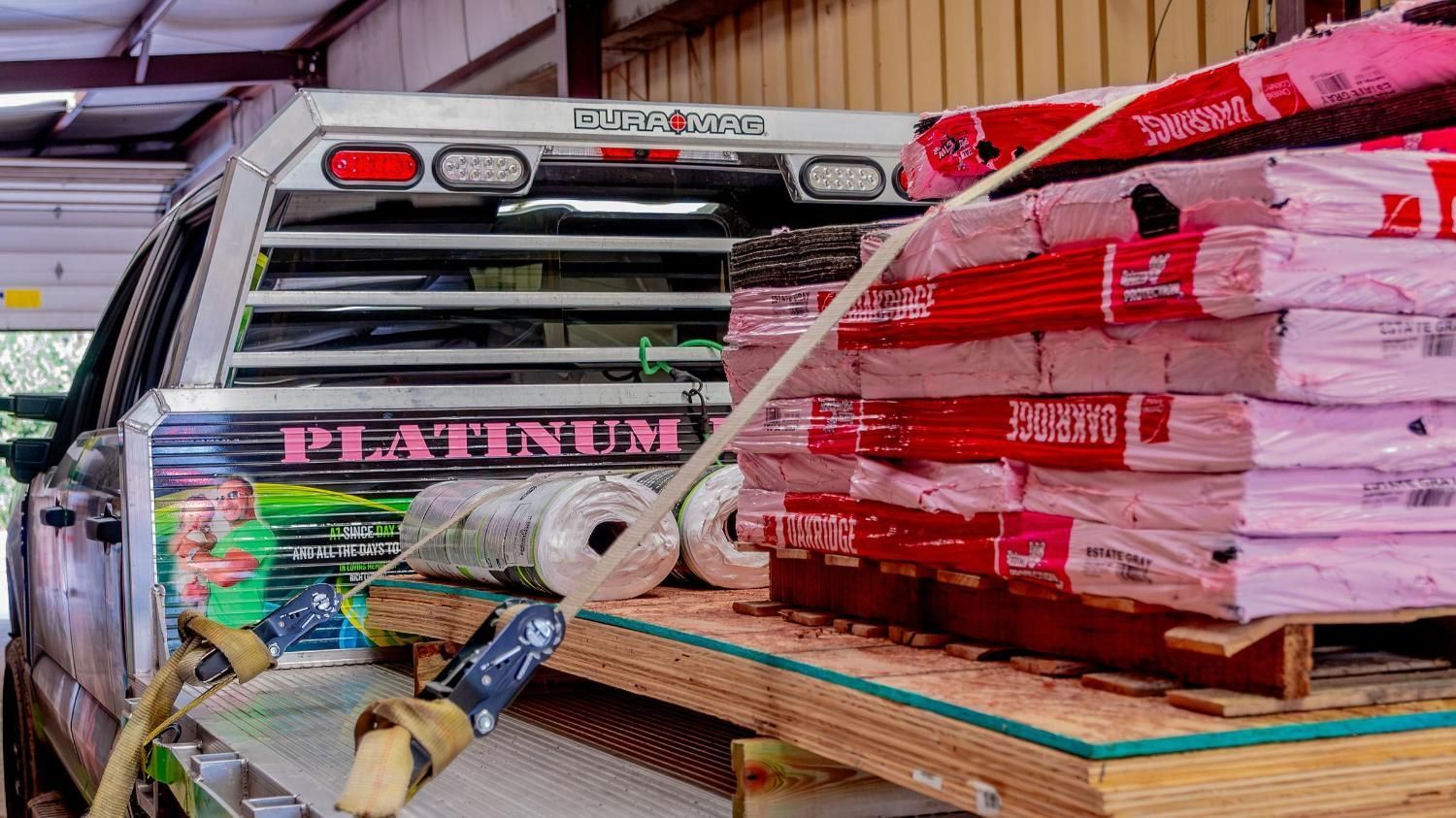
The choice of roofing material significantly impacts the overall cost of a roof replacement. From basic asphalt shingles to high-end slate tiles, each material comes with its own cost range and benefits. Knowing these costs enables homeowners to select the best roofing option for their budget and needs.
Here are the specifics of different roofing materials available in Connecticut.
Asphalt Shingles
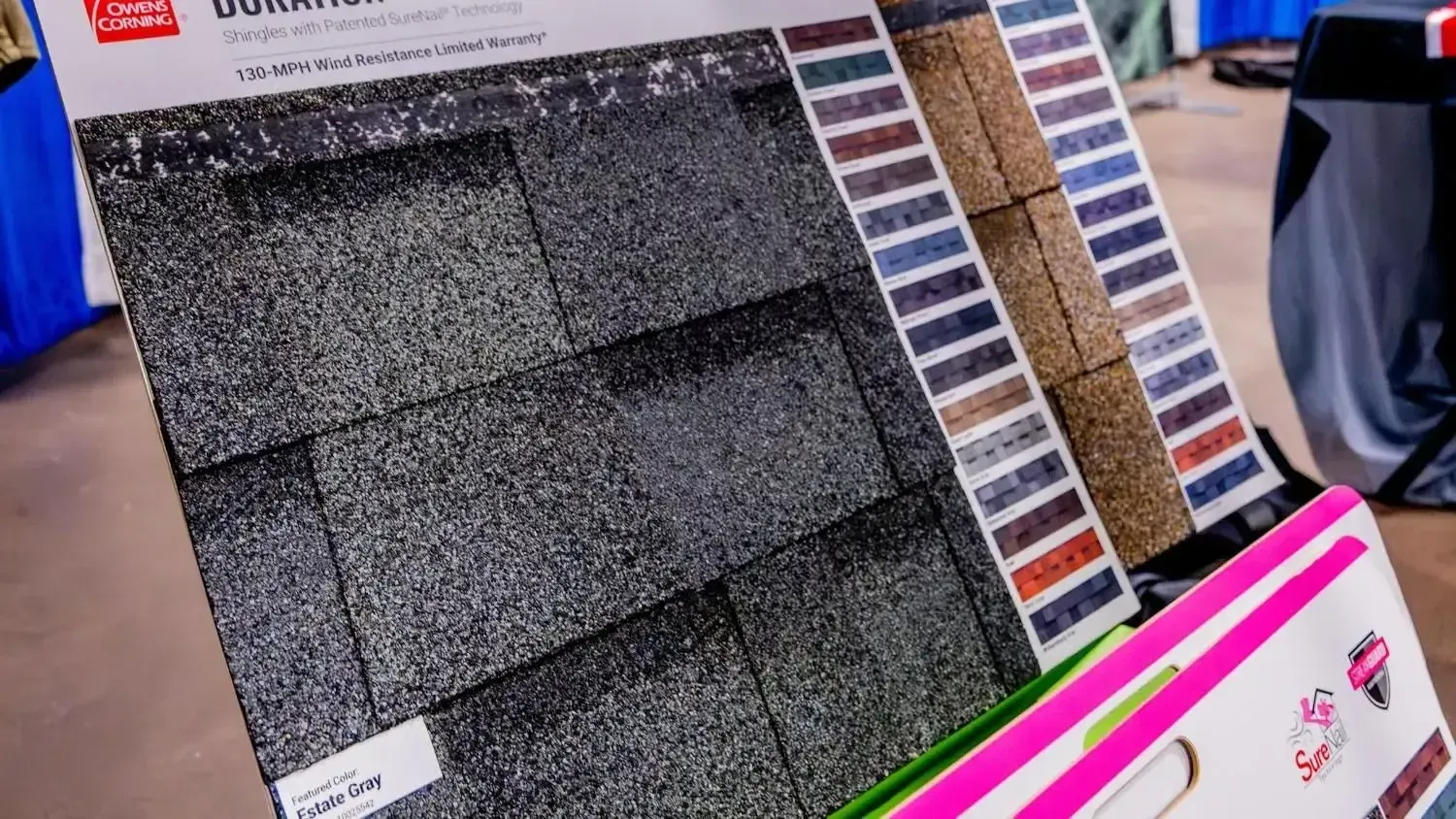
Asphalt shingles are a popular choice among Connecticut homeowners due to their affordability and durability. For an average-sized home, the cost for a new asphalt shingle roof usually falls between $2,000 and $4,000. This price range can vary depending on specific factors related to the home. The cost for a simple roof replacement with 3-tab shingles is around $3,000. These shingles, with a lifespan of 15 to 20 years, represent a cost-effective option.
Premium asphalt shingles, while more expensive, provide additional durability and aesthetic appeal. The cost for these can exceed that of basic options, ranging from $4.50 to $8.25 per square. Homeowners looking to balance cost and quality often find asphalt shingles to be a reliable choice for their roofing projects.
Metal Roofing
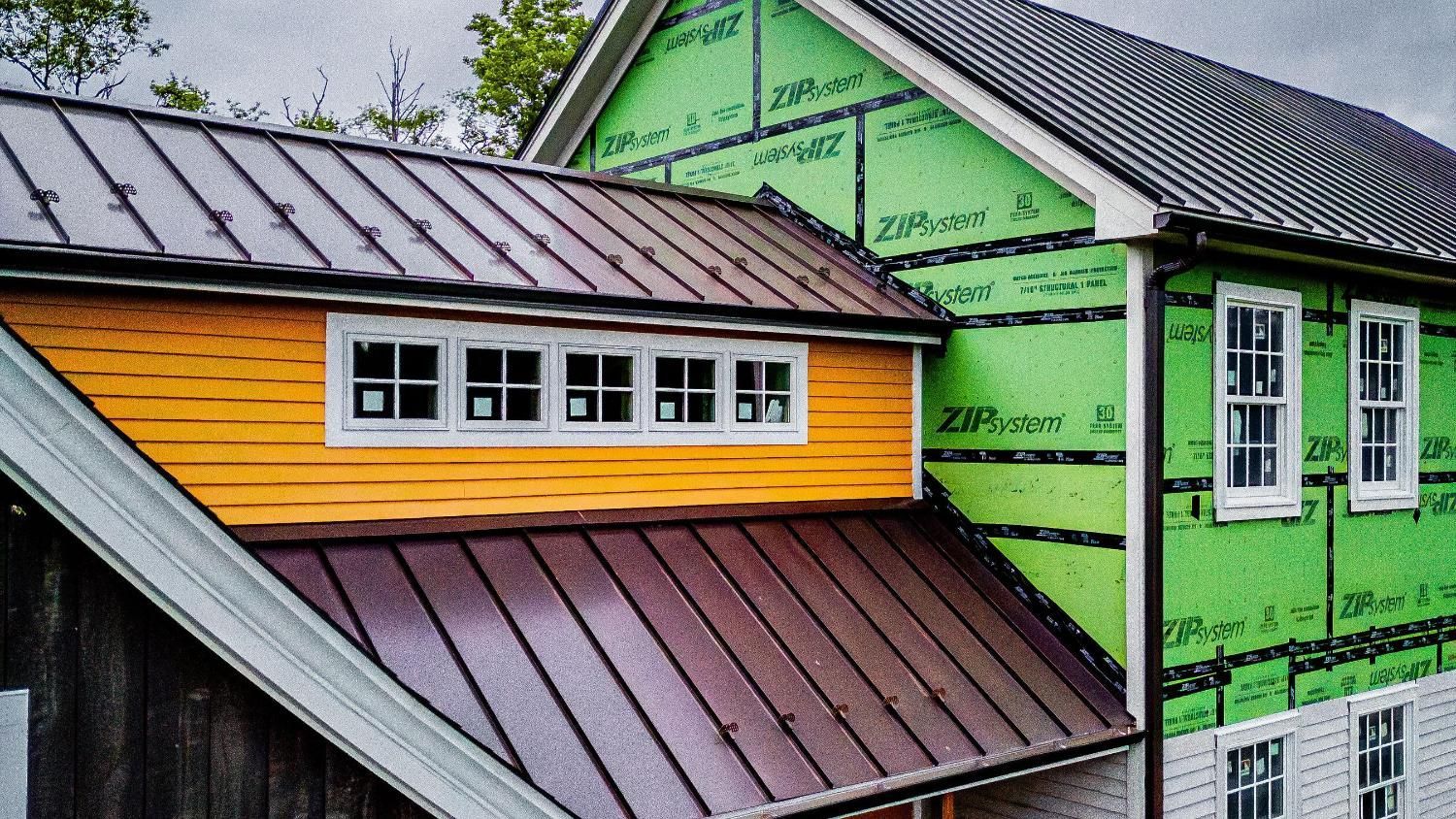
Metal roofing is another viable option, known for its longevity and low maintenance. Metal roofs can last 50 years or longer with proper maintenance. They also offer potential savings on insurance premiums due to their durability and resistance to fire and extreme weather. The cost for metal shingles in Connecticut ranges from $5.50 to $13.75 per square.
However, it’s essential to consider potential limitations, such as hail damage, which might require separate deductibles in insurance policies. Despite the higher initial cost, the long-term savings from fewer repairs and insurance benefits make metal roofing an attractive option for many homeowners.
Slate and Tile Roofing
For those seeking a more premium and durable option, slate and tile roofing offer exceptional longevity. High-end stone or slate roof replacement costs in Connecticut can range from $6,500 to over $20,000. Known for their durability, these materials can last several decades with proper maintenance, making them a worthwhile investment for long-term homeowners.
Labor Costs for Roof Replacement in CT
Labor costs are a significant component of the overall roof replacement cost. In Connecticut, labor expenses usually range from $1 to $11 per square foot. Factors such as roof size, material type, and scheduling during off-peak seasons can influence these costs.
Accurate budgeting and planning depend on understanding these labor costs.
Factors Affecting Labor Costs
Several factors significantly affect labor costs in roof replacement projects. The size of the roof is a primary factor, as larger roofs require more materials and labor hours to install. Additionally, the pitch of the roof can increase labor costs; steeper roofs involve greater complexity and risk, necessitating higher labor charges.
Complex roofing features, such as dormers or skylights, also elevate labor costs due to the increased work intensity and precision required. Anticipating and budgeting for labor costs in roofing projects requires awareness of these factors.
Local Labor Rates
Local labor rates in Connecticut vary, with higher costs typically found in urban areas compared to rural locations. This variation is due to differences in the cost of living and demand for skilled labor in different regions.
Considering local labor rates is essential for accurate cost estimates when planning roofing projects.
Additional Costs to Consider
Beyond materials and labor, several additional costs can impact the total roof replacement project budget. These include permits, structural repairs, and disposal fees, which can add significant expenses to the overall project.
Awareness of these potential costs allows homeowners to prepare a comprehensive roofing budget.
Removing Old Roofing Materials
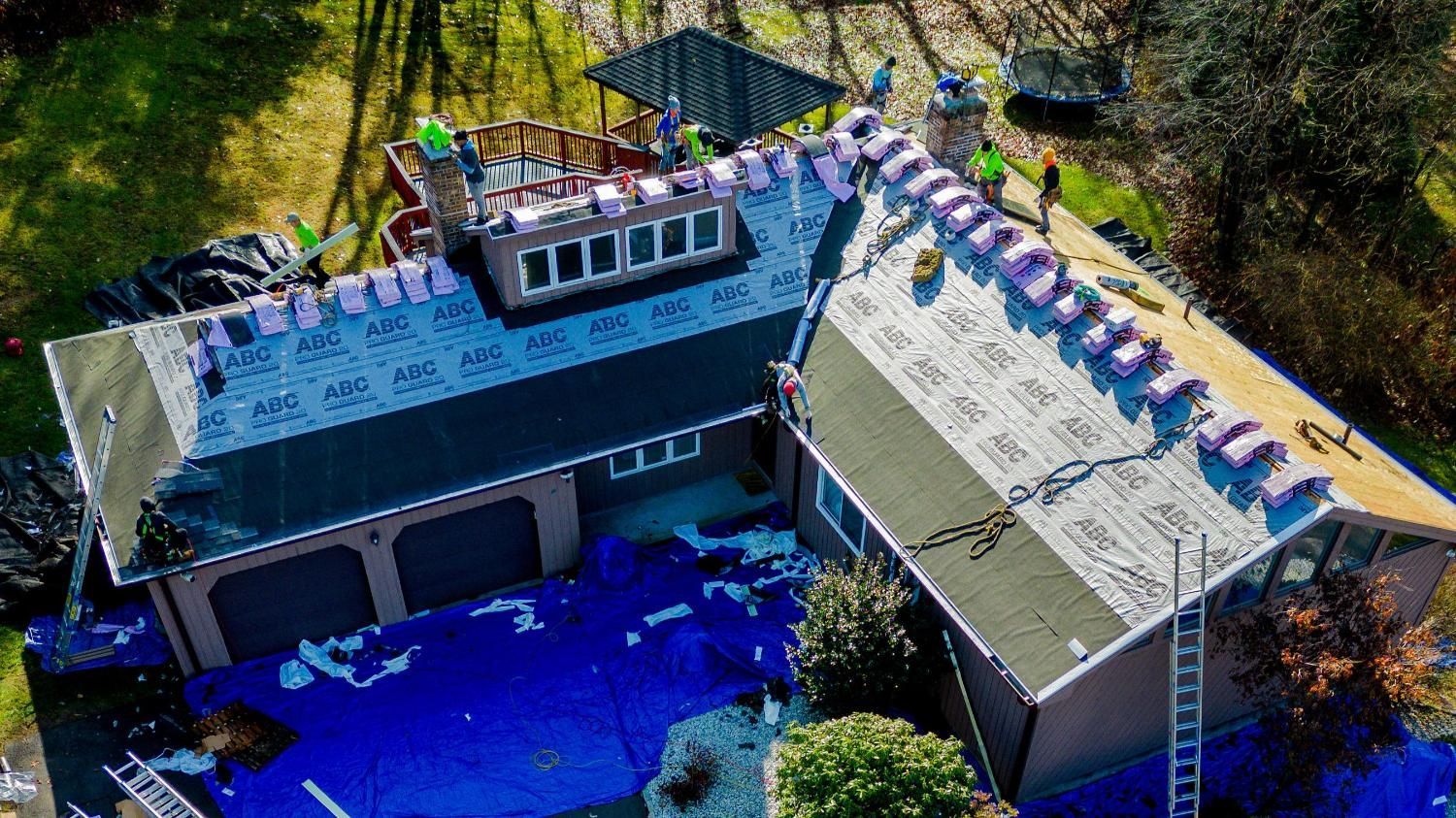
Removing old roofing materials is a necessary step in the roof replacement process. The average cost to remove an existing roof for a single-story ranch-style home with asphalt shingles ranges from $1,100 to $1,400. Labor costs for this task can range from $150 to $500, depending on the complexity and volume of materials.
Additional expenses include cleanup and disposal fees, which can add several hundred dollars to the project. Homeowners may also need to rent a dumpster if materials cannot be recycled, further increasing costs. These aspects must be taken into account when budgeting for a complete roof replacement.
Structural Repairs
Unexpected structural repairs can significantly impact the overall roofing budget. Such repairs can add about 20% to the total cost. If parts of the roof structure need replacement due to water damage or rot, the costs can quickly escalate. Promptly addressing these issues ensures the safety and longevity of the new roof.
Ignoring existing damage can lead to more severe problems, such as water accumulation and pest infestations, resulting in even higher costs. Repairing or replacing damaged wood during the roofing project can cost between $500 and $2,000, depending on the extent of the damage.
Permits and Inspections
Obtaining the necessary permits and inspections is a crucial step in the roofing process. Permit fees in Connecticut can range from $100 to $1,400, depending on the project’s scope and location. Homeowners associations may also have specific requirements and fees that need to be considered.
Additionally, local regulations may mandate inspections during the installation, adding to the overall cost.
DIY vs. Professional Roof Replacement
Deciding between a DIY roof replacement and hiring a professional can significantly impact the overall cost and quality of the project. While DIY can save on labor costs, it comes with risks and potential hidden expenses, especially if a partial roof replacement is needed.
On the other hand, professional installations ensure quality and longevity, often providing better value in the long run.
Cost Savings and Hidden Expenses
Opting for a DIY roof replacement can lead to significant cost savings by eliminating labor expenses. However, it’s essential to consider the hidden costs, such as the potential for mistakes, lack of warranty, and the risk of injuries. These issues can result in expensive future repairs, negating the initial savings.
Homeowners should be cautious of unexpected problems and complicated installations that could arise during a DIY project. While DIY is often seen as a cost-saving option, the potential for higher long-term expenses must be considered.
Benefits of Hiring Professionals
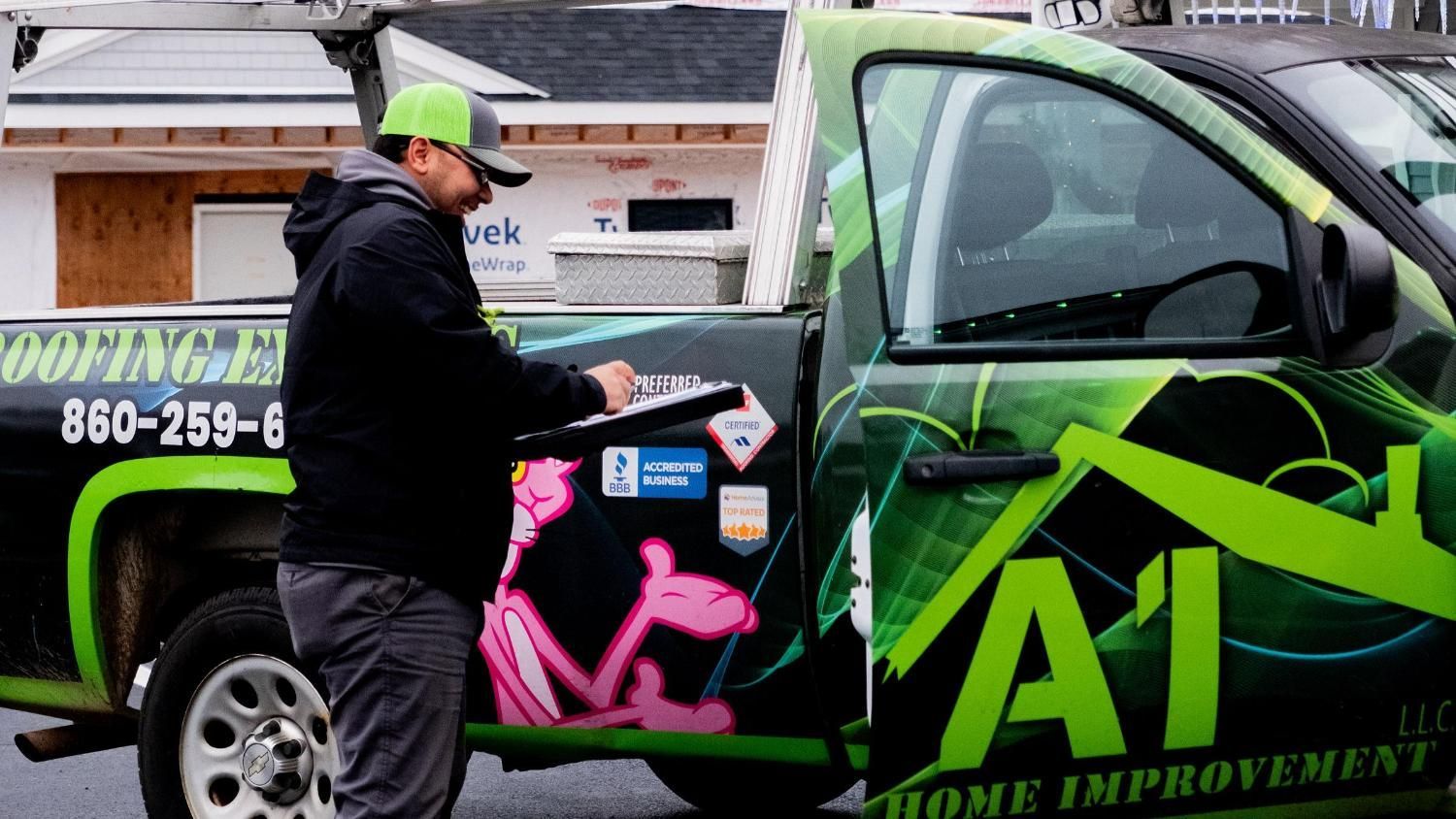
Hiring professional roofing contractors ensures safety and accuracy in roof replacement. Experienced contractors adhere to safety regulations and deliver high-quality workmanship, reducing the likelihood of future repairs. Additionally, professional installations often come with warranties that cover both materials and workmanship, providing long-term value and peace of mind.
Choosing the right contractor involves assessing credentials and interviewing multiple candidates to find the best fit for the project. While the initial cost may be higher, the benefits of professional installation often outweigh the expenses, making it a wise investment for homeowners.
Tips for Reducing Roof Replacement Costs
Reducing roof replacement costs is a priority for many homeowners. By exploring financing options, selecting cost-effective materials, and maintaining the roof regularly, significant savings can be achieved. These strategies help manage expenses without compromising on quality or durability.
Financing Options
Exploring financing options can significantly ease the burden of roof replacement expenses. In Connecticut, homeowners can consider options like home equity lines of credit (HELOC) or solar company bundles that include roofing installation. These methods provide flexible borrowing terms and can spread the cost over time, making the project more manageable.
Choosing Cost-Effective Materials
Selecting cost-effective roofing materials is a smart way to reduce overall expenses. Opting for mid-range materials offers a good balance between cost and durability. For example, metal roofs provide longevity, weather protection, and potential energy savings, making them a cost-effective choice despite their higher initial cost.
Homeowners should also consider potential insurance discounts when selecting roofing materials. Although lower-quality materials might seem cheaper upfront, they could require more frequent replacements, increasing long-term costs. By choosing materials wisely, homeowners can achieve significant savings while ensuring a durable roof.
Regular Maintenance
Regular maintenance is key to prolonging the lifespan of an old roof and reducing replacement costs. Routine inspections and minor repairs can prevent major issues, saving homeowners money in the long run.
Regular maintenance enhances roof durability and protects the homeowner’s investment, making it a cost-effective strategy.
Summary
Understanding the various factors that influence roof replacement costs in Connecticut is essential for planning and budgeting. From material choices to labor rates and additional expenses, each aspect plays a crucial role in determining the final cost. By considering these factors and exploring cost-saving tips, homeowners can make informed decisions and ensure a durable, long-lasting roof. Remember, investing in quality materials and professional installation often pays off in the long run, providing peace of mind and protecting your home.
FREQUENTLY ASKED QUESTIONS
Have Questions? We Have Answers
Share this Post
